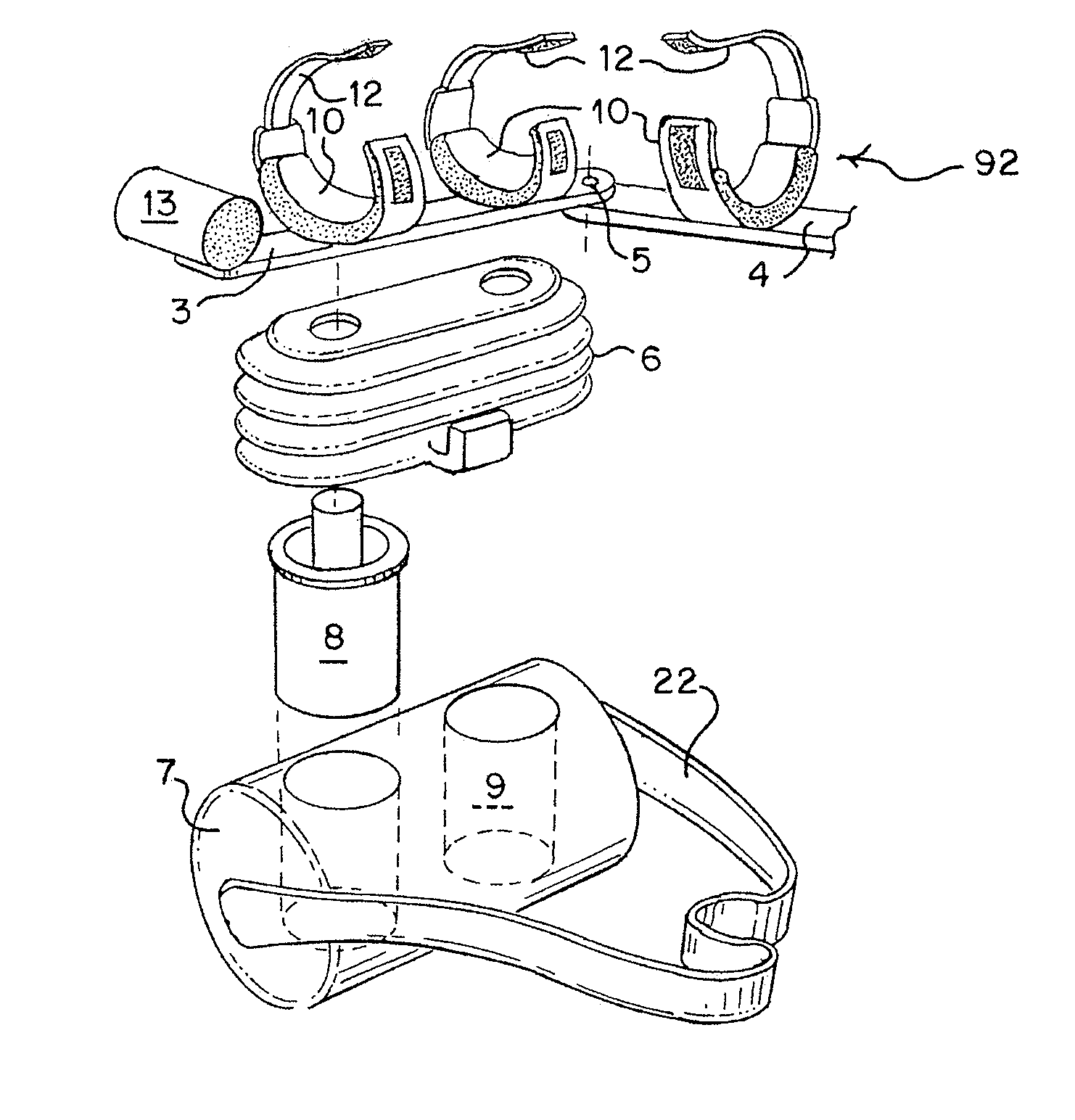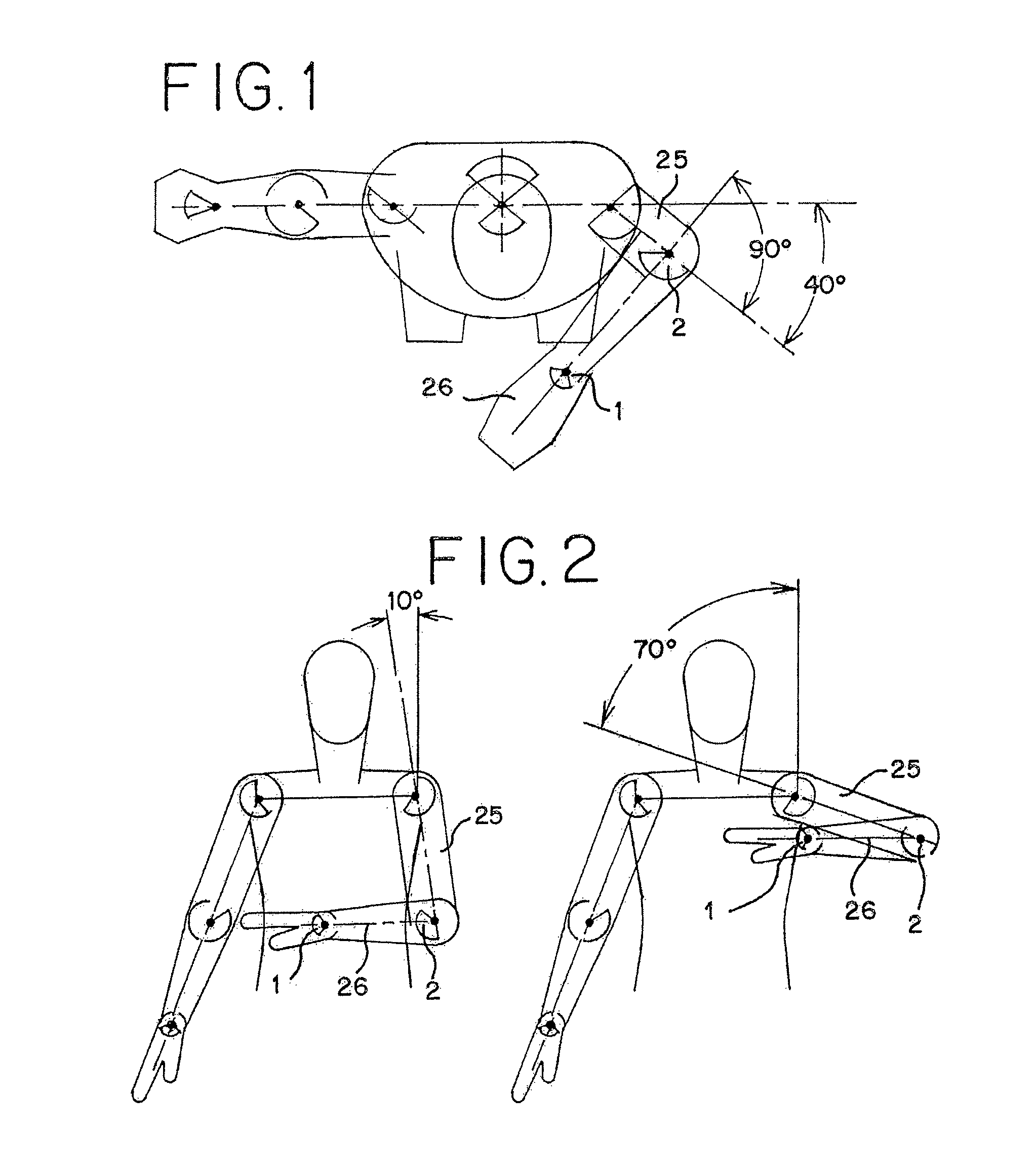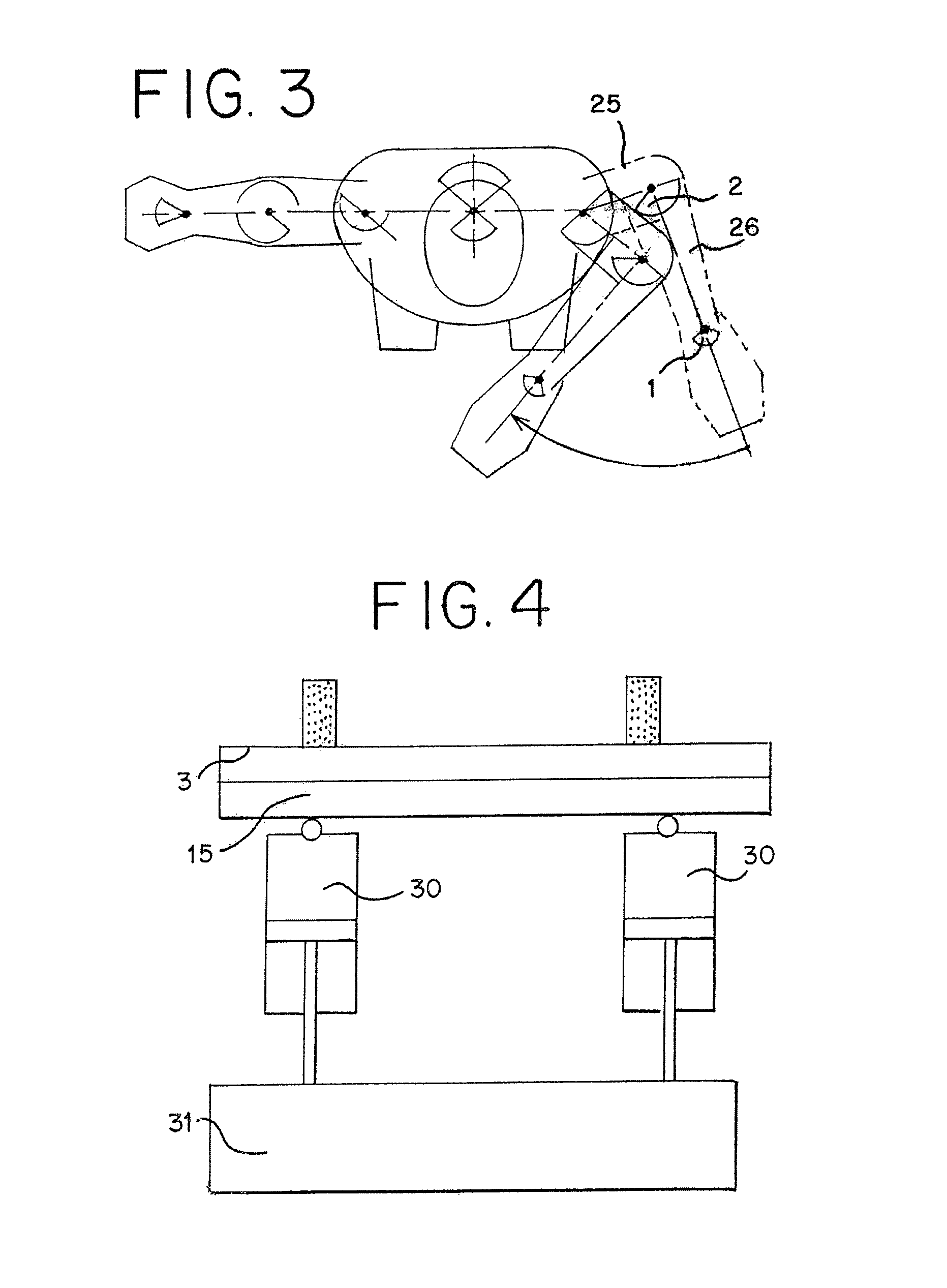Orthopedic arm and shoulder brace
a portable, arm and shoulder technology, applied in the field of orthopaedic arm and shoulder brace, can solve the problems of immobilizing patients' shoulders, complex devices, and inability to enable the embraced arm and shoulder to undergo combined movements, and achieve the effects of effective rehabilitation of the injured limb, convenient application, and convenient portability
- Summary
- Abstract
- Description
- Claims
- Application Information
AI Technical Summary
Benefits of technology
Problems solved by technology
Method used
Image
Examples
Embodiment Construction
[0043]The present invention will be described with respect to particular embodiments and with reference to certain drawings but the invention is not limited thereto but only by the claims. The drawings described are only schematic and are non-limiting. In the drawings, the size of some of the elements may be exaggerated or distorted and not drawn on scale for illustrative purposes. Where the term “comprising” is used in the present description and claims, it does not exclude other elements or steps. Where an indefinite or definite article is used when referring to a singular noun e.g. “a” or “an”, “the”, this includes a plural of that noun unless something else is specifically stated.
[0044]It is often necessary for orthopedic specialists to secure one or more limbs of a human or animal patient against movement following injury or treatment of the limb or limbs. Moreover, procedures involving surgery of a limb often necessitate post-surgical immobilization, which facilitates recovery...
PUM
 Login to View More
Login to View More Abstract
Description
Claims
Application Information
 Login to View More
Login to View More - R&D
- Intellectual Property
- Life Sciences
- Materials
- Tech Scout
- Unparalleled Data Quality
- Higher Quality Content
- 60% Fewer Hallucinations
Browse by: Latest US Patents, China's latest patents, Technical Efficacy Thesaurus, Application Domain, Technology Topic, Popular Technical Reports.
© 2025 PatSnap. All rights reserved.Legal|Privacy policy|Modern Slavery Act Transparency Statement|Sitemap|About US| Contact US: help@patsnap.com



